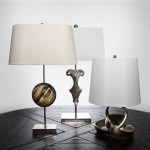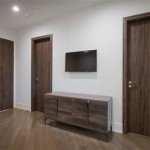Interior Office Doors With Glass: Enhancing Light, Space, and Productivity
Interior office doors with glass have become increasingly popular in modern workplace design. They offer a multitude of benefits, ranging from improved natural light penetration to enhanced aesthetics and boosted employee morale. Choosing the right type of glass door for an office environment, however, requires careful consideration of factors such as privacy needs, security concerns, acoustic performance, and overall design aesthetic.
The integration of glass into interior office doors marks a shift from traditional, solid-core doors that often create a sense of isolation and confinement. By allowing natural light to flow more freely throughout the office space, glass doors contribute to a brighter, more inviting atmosphere. This can positively impact employee well-being, reduce reliance on artificial lighting, and create a more visually appealing environment for both employees and visitors.
Key Point 1: Maximizing Natural Light and Reducing Energy Consumption
One of the primary advantages of using glass in interior office doors is the increased penetration of natural light. Natural light is known to have numerous health benefits, including improved mood, reduced eye strain, and increased Vitamin D production. In an office setting, access to natural light can lead to increased productivity, reduced absenteeism, and a more positive work environment. By strategically incorporating glass doors into the office layout, businesses can leverage natural light to its fullest potential, minimizing the need for artificial lighting during daylight hours.
Furthermore, reduced reliance on artificial lighting translates directly into lower energy consumption. This not only benefits the environment but also results in significant cost savings for the business. Over time, the energy savings associated with using glass doors can offset the initial investment, making them a financially sound choice in the long run. The specific type of glass used can also influence energy efficiency. Low-E glass, for example, is designed to minimize heat transfer, helping to regulate the temperature inside the office and further reduce energy consumption.
The impact of natural light extends beyond mere illumination. Studies have shown that exposure to natural light can improve cognitive function, enhance alertness, and reduce stress levels. By creating a brighter and more naturally lit workspace, glass doors contribute to a healthier and more productive work environment. This, in turn, can lead to improved employee performance and increased job satisfaction.
Key Point 2: Creating a Sense of Openness and Collaboration
Solid doors can create a feeling of separation and isolation within an office environment. In contrast, glass doors foster a sense of openness and transparency. They allow employees to see and interact with one another more easily, promoting collaboration and communication. This is particularly beneficial in open-plan offices where visual connection is often desired but privacy is still required in certain areas, such as meeting rooms or private offices.
The use of glass doors can also help to break down barriers between departments and teams. By creating a more visible and interconnected workspace, glass doors encourage interaction and cross-functional collaboration. This can lead to improved communication, increased innovation, and a stronger sense of community within the workplace. The design of the glass itself can also contribute to the overall aesthetic and functionality. For example, frosted or textured glass can provide a degree of privacy while still allowing light to pass through.
Moreover, glass doors can visually expand the perceived space within an office. This is particularly important in smaller offices where space is limited. By allowing light to flow freely and creating a sense of openness, glass doors can make the office feel larger and more inviting. This can improve employee morale and create a more comfortable and productive work environment.
In promoting collaboration, careful consideration should be given to acoustics. While glass allows visual communication, it can also transmit sound. Implementing soundproofing measures, such as using laminated glass or acoustic seals, can help to mitigate noise transmission and ensure that private conversations remain confidential.
Key Point 3: Balancing Privacy and Aesthetics with Different Glass Types
While the benefits of glass office doors are numerous, it's crucial to address the issue of privacy. Fortunately, there are various types of glass available that offer different levels of privacy, allowing businesses to tailor their choices to specific needs. Clear glass provides maximum transparency and visibility, while frosted glass offers a higher degree of privacy by obscuring details. Other options include tinted glass, patterned glass, and smart glass, which can switch between clear and opaque states on demand.
Frosted glass, for example, is a popular choice for meeting rooms and private offices where some level of privacy is desired. It allows light to pass through while preventing people from seeing clearly into the room. Tinted glass can reduce glare and heat gain, making it a good option for offices that receive a lot of direct sunlight. Patterned glass adds a decorative element while also providing some level of privacy. Smart glass offers the ultimate in flexibility, allowing users to control the level of transparency as needed.
The aesthetic appeal of glass doors is another important consideration. Glass doors can significantly enhance the overall look and feel of an office space, creating a modern and sophisticated environment. The type of frame used for the glass door can also impact the overall aesthetic. Options include aluminum frames, wood frames, and frameless designs. The choice of frame material will depend on the desired style and the overall design of the office.
Furthermore, the hardware used on the glass doors can contribute to the overall aesthetic and functionality. Options include various types of handles, hinges, and locking mechanisms. The hardware should be chosen to complement the style of the glass door and the overall design of the office. It should also be durable and easy to use.
The selection of glass type and design is crucial in balancing the need for both privacy and aesthetic appeal. It’s imperative to consider the specific purpose of each room or area where glass doors will be installed. For example, executive offices may require a higher degree of privacy than collaborative workspaces. By carefully considering these factors, businesses can create a visually appealing and functional office environment that meets the needs of their employees.
Installation also plays a vital role in the performance and longevity of glass office doors. Proper installation ensures that the doors are secure, operate smoothly, and provide the desired level of acoustic performance. It is recommended to hire experienced professionals to install glass doors to ensure that they are installed correctly and safely. This will help to prevent any issues down the road and ensure that the doors provide years of trouble-free service.
Maintenance is another important factor to consider. Glass doors require regular cleaning to maintain their appearance and ensure that they continue to provide optimal light transmission. The type of cleaner used will depend on the type of glass. Harsh chemicals should be avoided as they can damage the glass. It is also important to regularly inspect the hardware to ensure that it is functioning properly. Any loose screws or worn parts should be replaced promptly to prevent further damage.
The trend towards using interior office doors with glass is likely to continue as businesses increasingly recognize the benefits of natural light, open workspaces, and modern aesthetics. By carefully considering the factors discussed above, businesses can choose the right type of glass door for their specific needs and create a more productive, inviting, and visually appealing work environment. The integration of glass doors can be a significant investment in the long-term success of a business by improving employee well-being, reducing energy costs, and enhancing the overall brand image.
In conclusion, the careful selection, installation, and maintenance of interior office doors with glass represent a strategic investment that can yield significant returns in terms of employee well-being, energy efficiency, and overall workplace aesthetics. By thoughtfully considering privacy needs, acoustic requirements, and design preferences, businesses can create an office environment that optimizes productivity, fosters collaboration, and enhances the overall employee experience.

Casual Comfort In Greenwich Ct Home Office Design French Doors Interior

Interior Glass Doors Walls Offices Creative Mirror Shower

Commercial Swinging Doors Industrial Glass Office

Solving Frameless Glass Doors Interior Challenge In Modern Office

Interior Glass Doors Walls Offices Creative Mirror Shower

Benefits Of Interior Glass Doors Advantages Wooden

Glass And Steel Interior Doors Dividing Walls Wine Cellars Modern Custom Chicago

5 Benefits Of A Modern Office Space With Interior Glass Doors Built In Chicago

Glass Office Door Feel Less Confining Etched Doors Florida

Interior Glass Doors Walls Offices Creative Mirror Shower








